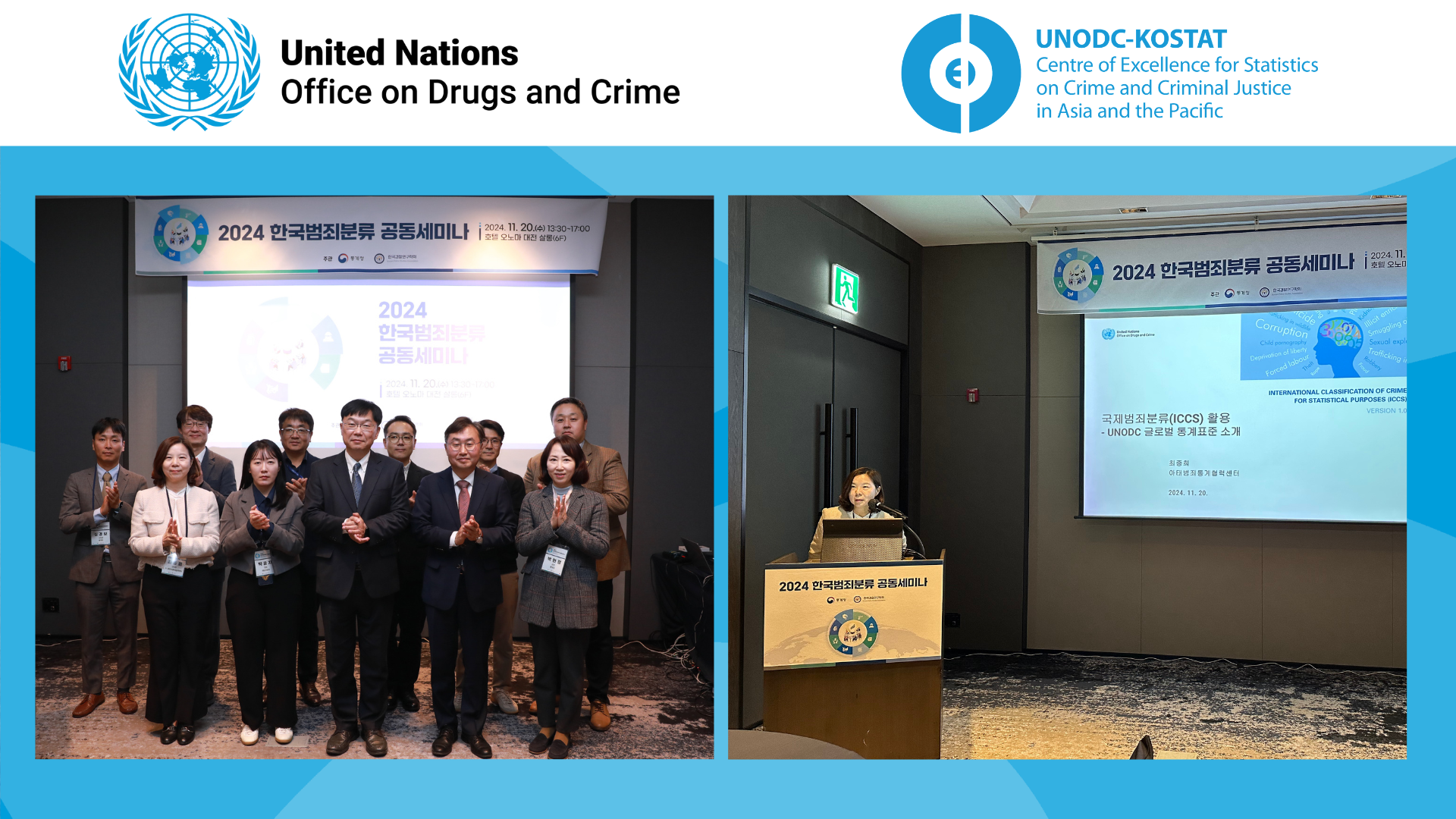
Daejeon (Republic of Korea), 20 November 2024 – Since 2016, the Korean Classification of Crime for Statistical Purposes (KCCS) Seminar has provided a platform for discussions between academia and relevant government agencies on the development and refinement of the KCCS based on the International Classification of Crime for Statistical Purposes (ICCS).
The 2024 KCCS Seminar, co-organized by Statistics Korea (KOSTAT) and the Korean Police Studies Association (KOPSA), brought together experts from the Korea Coast Guard and respective academic research teams to discuss the progress of the KCCS and explore its practical applications. Discussions ranged from applying the KCCS to domestic crime statistics and reclassifying the current crime statistics to align with the KCCS using artificial intelligence (AI) to developing maritime crime statistics based on the KCCS.
In his opening remarks, Hyungjun Ahn, Deputy Commissioner of KOSTAT, highlighted the increasing complexity of modern crime, such as cybercrime and transnational crime and the need for reliable and robust crime statistics for actionable crime prevention strategies. He expressed gratitude to national criminal justice agencies for their collaborative efforts to develop the KCCS. Professor Wook Kang, President of KOPSA, provided a congratulatory remark, emphasizing the importance of standardized crime classifications in addressing the rise of economic and transnational crimes and in supporting evidence-based policymaking.
The seminar commenced with a presentation on the development of the KCCS, its current progress in implementation, and future plans for its expansion and application in improving crime classification and statistical analysis. This was followed by a presentation from Jonghee Choi, CoE Coordinator, who began her presentation by emphasizing the practical use of classification and added that KOSTAT was preparing a user guide following the completion of the KCCS classification, hoping that it would be widely utilized through related training. She introduced UNODC global standard tools for crime statistics based on the ICCS and elaborated on the benefits of implementing the ICCS in fostering international comparability, supporting evidence-based policymaking, and helping uncover hidden crime patterns. She concluded by underscoring the CoE role in providing capacity-building and methodological guidance across the Asia-Pacific region.
Through the seminar, the CoE reaffirmed its commitment to working closely with Member States to support these efforts. Further information on the CoE can be found here, Twitter @CoE_UNODC and Facebook @UNODC.KOSTAT.CoE.